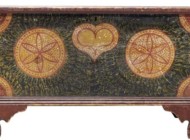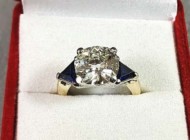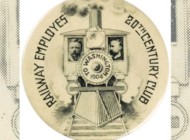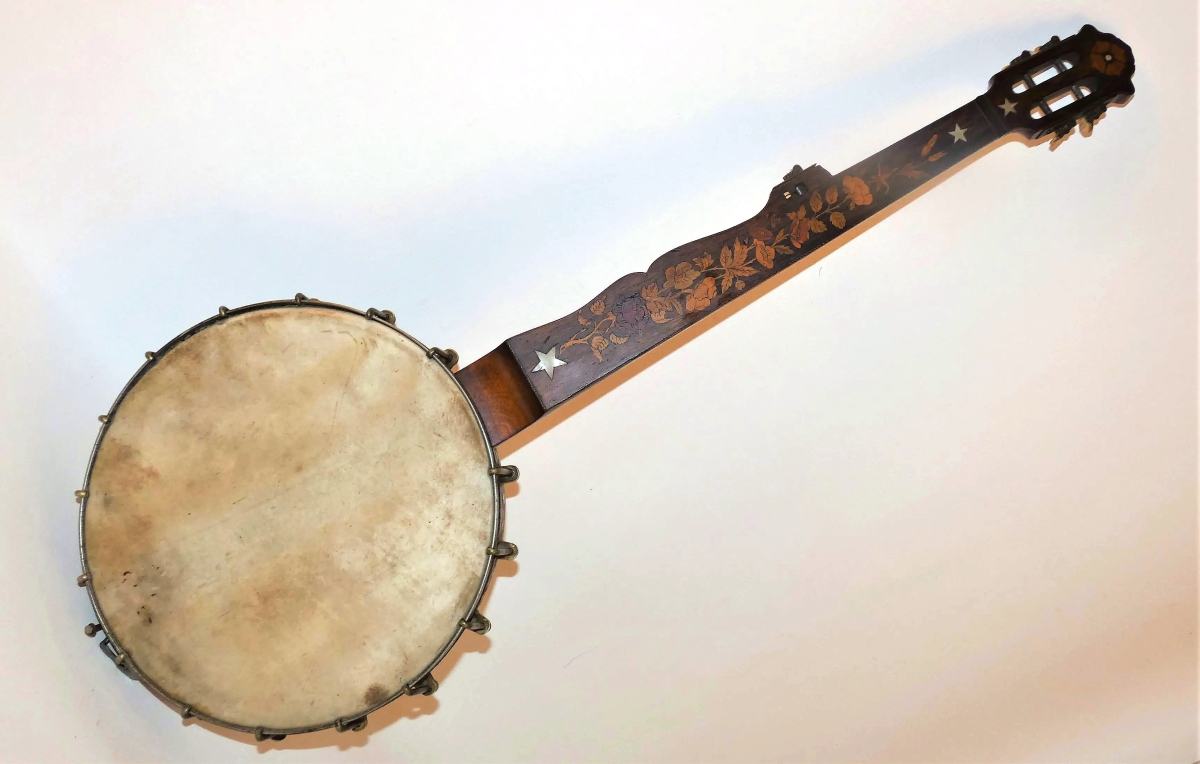
Including this example, only five banjos are known from Baltimore maker Levi Brown, and the new owner of this work now has two. Brown’s steambent wooden rim banjos are regarded for their inlay and attention to detail, which the artist exemplified here in the floral marquetry up the instrument’s neck and around the rim. It was found in the Greig estate and sold for $19,200.
Review by Greg Smith, Photos Courtesy Americana Auctions
REHOBOTH, MASS.- You passed through five items in Americana Auctions’ August 1 leaderboard before you hit a work of “fine” art. That doesn’t mean the other pieces weren’t fine, indeed the first four were crafted, carved and delivered with a remarkable level of skill, and the fifth carried the weight of American democracy on its back.
About 70 items in the sale came from the Jackson, N.H., estate of Thomas Greig.
“Thomas Greig was a relative of the Bridgham family, they were an important family in Rhode Island,” said Rich Shute, auction manager. “They were an early, wealthy family. We had a pair of portraits of Samuel Bridgham and his wife, they appear to be the earliest members of the family in the United States that we’re aware of. Samuel Bridgham was a Brigadier General in the War of 1812 and the first mayor of Providence. R.I., in 1932.”
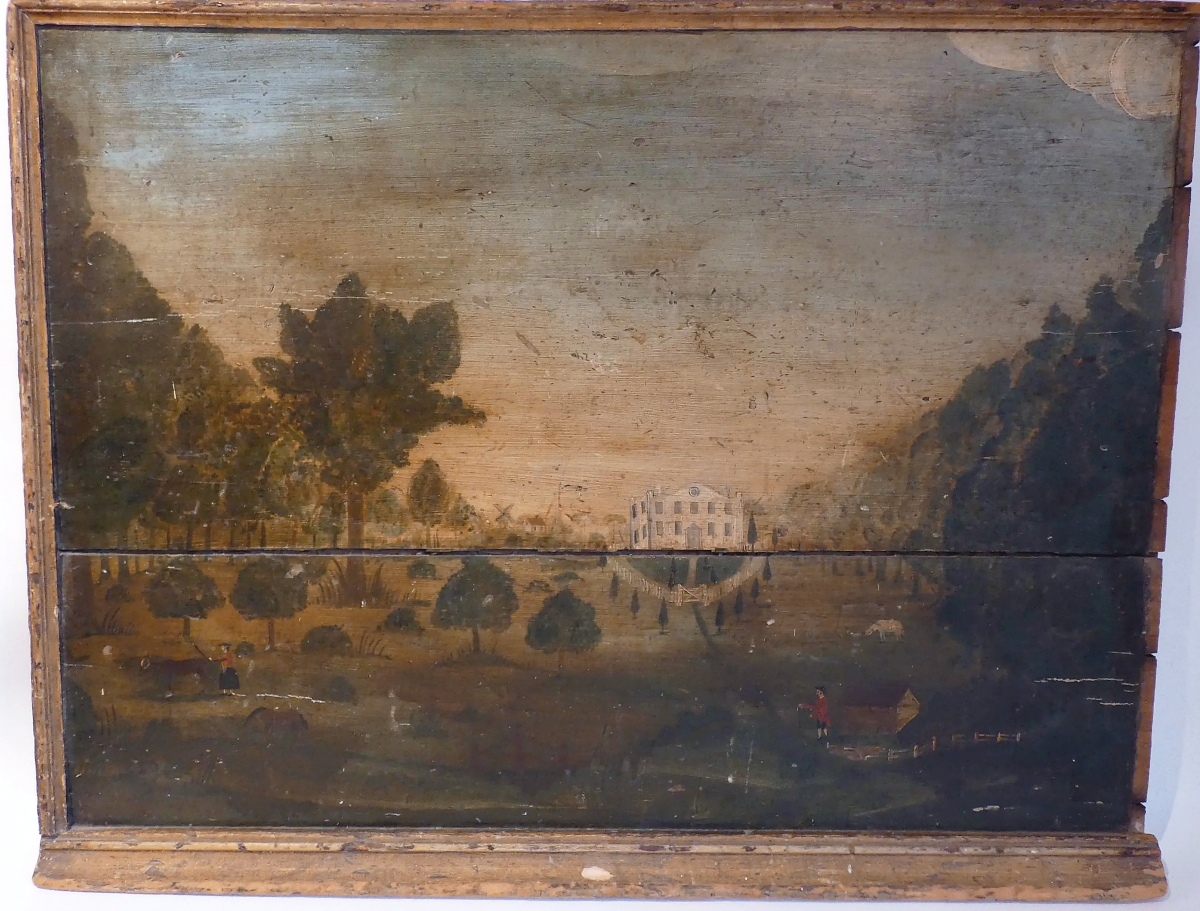
Featuring an early colonial estate, this fireboard with original paint sold for $13,750 to a buyer in Michigan. The auction house dated it to circa 1830 and found it in Greig estate.
Shute said the Greig estate was a time capsule of artifacts passed down through time.
From the estate was the sale’s leader at $19,200, a wooden rim banjo with fine inlay work attributed to Baltimore maker Levi Brown. Only five banjos by Brown are known to exist. The few known to survive all feature inlay to them and this example was no different with its meandering marquetry floral and foliate inlay up the neck. Mother-of-pearl or abalone stars appeared at the top and bottom of the neck as well as around the rim, alternating with a repeating rosette in wood. Brown’s works are so coveted today that modern luthiers will reproduce examples done in the style of his craft. According to period advertisements, Brown played gigs with minstrel groups, which were popular at the time. The lot came with two period photographs on cardstock of the same brownface musician holding a banjo over his shoulder in minstrel costume.
A Boston-area gentleman who attended the auction in person was the successful bidder.
“The man that purchased it owns one other by Brown,” Shute said. “He said his other is the best because it has silver inlay.”
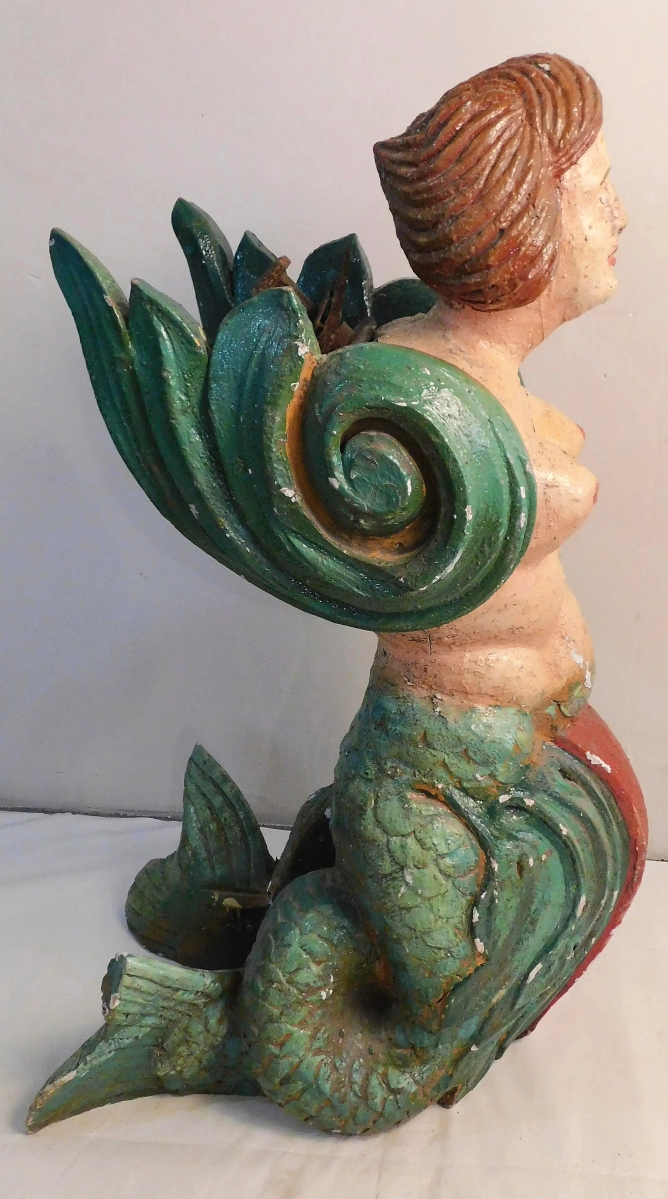
Among the figureheads crashed this mermaid with flourishing wings and coiled tail. She was 45 inches tall and dated to the Nineteenth Century. With repaint, she went out at $7,800.
The firm had three phone bidders on it and Shute noted there was a good buzz in the banjo community when it came up for sale.
Another object that paid no mind to its estimate was a Nineteenth Century fireboard with a painted folk art scene of a colonial estate that sold for $13,750. Also from the Greig estate, the work featured at center a two-story home with a white picket fence around it, a red-coated nobleman in the foreground with a white horse behind him, a red-coated noblewoman on the other side seen tending to the cows, with the valleys rising up on the left and right side of the composition as a massive tree stands center left, dwarfing the house and all other trees others around it. The fireboard was made of two boards joined with posts to the back and inspired 37 bids before it was knocked down.
“It was definitely American,” Shute said. “We thought it could have been the Bridgham estate circa the 1820s, but another person thought it was Pennsylvania.”
It sold to a Michigan-based dealer/collector who will give it a proper cleaning.
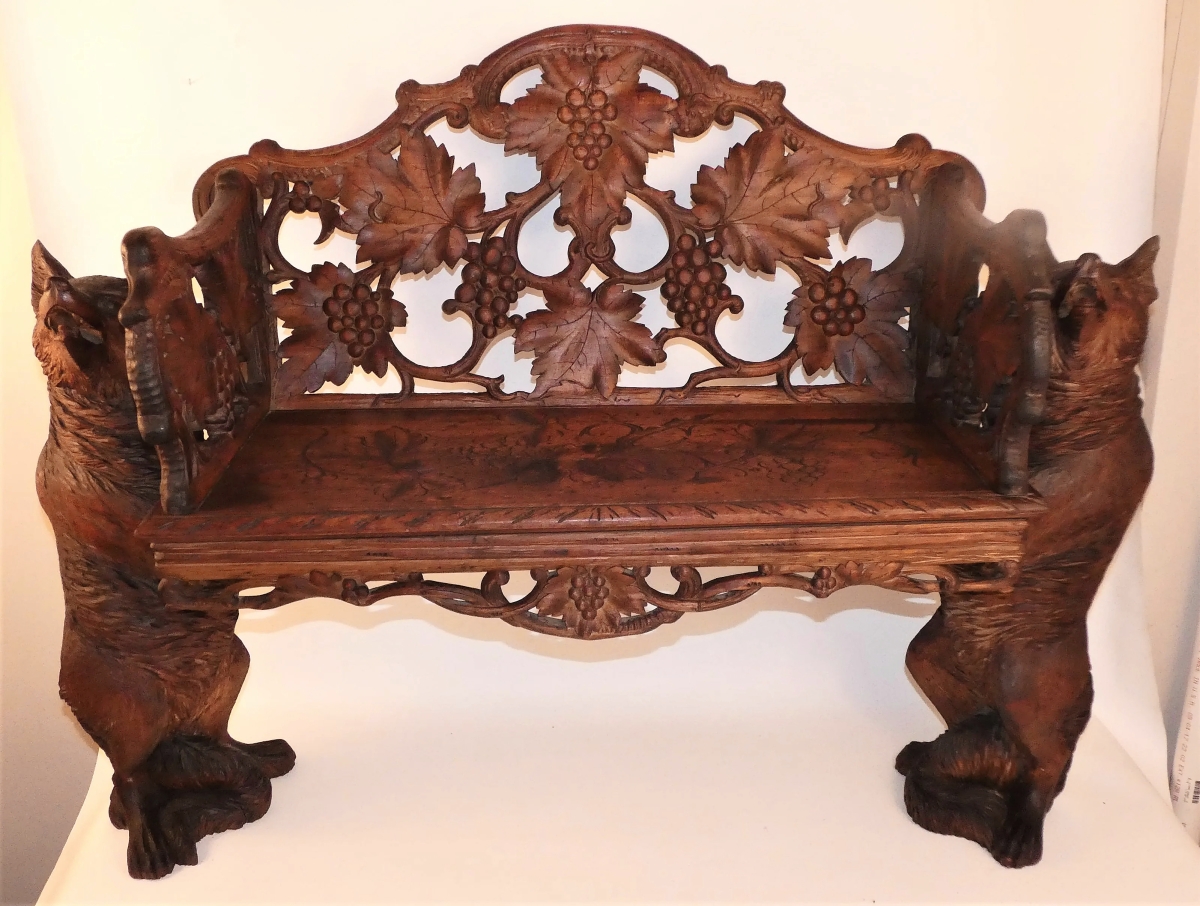
Shute noted that the full-bodied foxes holding up this Black Forest bench were rare as the supports were more commonly carved in the form of bears. It measured 46 inches long and sold for $7,200.
Among the carved delicacies was a mermaid ship figurehead from the Nineteenth Century. It had a repainted coat but was quite large at 45 inches tall and sold at $7,800. Right behind at $7,200 was an intricate Black Forest bench with full-bodied foxes lifting up the whole. The back and sides were pierced through and featured finely carved grape clusters and foliate, which appeared again along the apron. Shute said it was a rare depiction of the fox supports as these benches typically feature bears.
An original copy of the Ratification of the United States Constitution and Amendments by the Convention of the State of Rhode Island and Providence Plantation in 1790 would take 42 bids to sell at $6,600. The work was signed in the plate by Daniel Updike, secretary of the Rhode Island Convention, the auction house noting it was a true original copy. Updike notably served as the Attorney General of the Rhode Island colony from 1722 to 1733 and again from 1743 to 1757.
Birds in their many forms found favor in this auction. A first edition volume one hardcover of Audubon’s Birds of America sold for $5,400. It was published in 1839 by Chevalier. Though the cover was detached, the auction house noted the 70 color plates inside were all accounted for and in fine condition. Measuring 56 inches high was a carved and painted wood ship’s figurehead of an American eagle in a repaint. It would sell for $3,600. A Nineteenth Century iron weathervane of a rooster measured 20 inches high and was purportedly removed from a Barnstable, Mass., municipal building. The vane would crow for $2,400. A spring-loaded mechanical pigeon would do a bit better, taking $2,520. The pigeon featured a painted wood body and metal mounts with original paint – pull the chain down and the wings flap.
In all, the sale grossed about $350,000.
Americana Auctions’ next sale will be October 10. All prices include buyer’s premium. For more information, www.americana-auction.com or 508-771-1722.


















